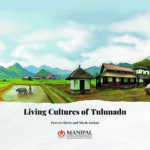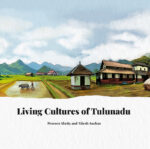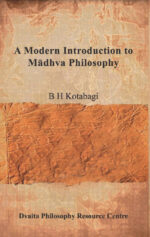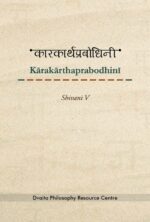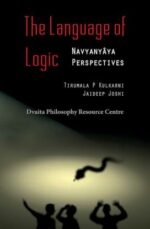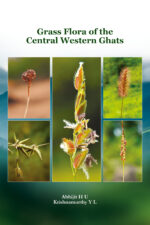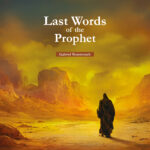-
Living Cultures of Tulunadu (2nd Edition)
₹600.00Authors: Praveen Shetty |Nithesh Anchan
Tulunadu, a region along the southwestern coast of India, despite the influence of modernity and the intermingling of cultures, has sustained its age-old practices and traditions. This book provides a glimpse into the cultures of Tulunadu, capturing the lived experiences of its people while examining diverse perspectives on these traditions. Through a harmonious blend of visuals and narratives, it introduces the readers to the essence of Tuluvas that defines the living cultures of Tulunadu.Interested readers may write to us at mup@manipal.edu about purchasing the book. -
Living Cultures of Tulunadu
₹400.00Authors: Praveen Shetty |Nithesh Anchan
Tulunadu, a region along the southwestern coast of India, despite the influence of modernity and the intermingling of cultures, has sustained its age-old practices and traditions. This book provides a glimpse into the cultures of Tulunadu, capturing the lived experiences of its people while examining diverse perspectives on these traditions. Through a harmonious blend of visuals and narratives, it introduces the readers to the essence of Tuluvas that defines the living cultures of Tulunadu.
Interested readers may write to us at mup@manipal.edu about purchasing the book. -
A Modern Introduction to Madhva Philosophy
₹475.00The author has made this treatise on Madhva’s realistic school of Vedānta philosophy convincing to the modern mind by employing western logical apparatus in substantiating Madhva’s ideas. Following the Indian classical tradition, the author has examined the validity of Advaitavedānta, the Absolute Monism of Śaṅkara and Bhāskara as Pūrvapakṣa, and logically proved its inconsistencies. He has then established the Dvaitasiddhānta i.e., the Monotheistic Dualism of Madhva. He has successfully brought out the nuances of the realistic school of Indian philosophical thought in this work. A Modern Introduction to Mādhva Philosophy is Prof B H Kotabagi’s posthumous publication.
Interested customers may write to us at mup@manipal.edu about purchasing the book.
Also available on

-
Karakarthaprabodhini
₹345.00Author: Shivani V
Kaumudī (water lily) is the primer to study Sanskrit grammar, yet an ardent reader might find it a maze to untangle from its complexities. There is a need of Kaumudī (moonlight) to blossom it and show the light to reach its core. Kārakārthaprabodhinī is such an attempt. Kāraka, a factor that determines the relation between verb and the constituent words of a sentence, enables the reader to understand the intent of the sentence and thus critical discourses too. The Sanskrit grammatical texts and discourses have elaborated on the subtleties of Kāraka. Due to its profundity, there was a need for a lucid writing for the scholars and students for easy comprehension, which can be a reference book. Dr Potti made this possible for the Malayalam readers. Dr Shivani presents it for the Sanskrit fraternity too, with an introduction by Dr Varakhedi.
Interested customers may write to us at mup@manipal.edu about purchasing the book.
Also available on

-
The Path of Proofs – Pramanapaddhati of Sri Jayatirtha
₹250.00Author: Shrinivasa Varakhedi
Epistemology of the Dvaita school of thought is presented in this short monograph Pramāṇapaddhati – the Path of Proofs, authored by Śrī Jayatīrtha. Epistemology is the science of knowledge that deals with the origin and nature of cognitive events and their means.
Ācārya Madhva, the proponent of the Dvaita school, has explained about the epistemology of this new school in his works. Since Madhva’s language is profound and the elucidations are scattered over his several works, it is difficult to comprehend for a novice. Hence, Pramāṇapaddhati was composed by his successor of third generation Śrī Jayatīrtha. The simple and captivating
style of this work is sure to ignite the interest in the readers to conduct further study in detail. This work is not only regarded as a standard textbook of Dvaita studies, but also considered as a basic authentic work in the Dvaita dialectic literature.This work is rendered into English by Prof Shrinivasa Varakhedi adopting the mirror-translation method.
Interested readers may write to us at mup@manipal.edu about purchasing the book.Also available on

-
Valmiki Ramayana – Critical Essays
₹250.00Author: M R Parameswaran
This book critically engages with several important events and statements found in Valmiki’s epic poem, the Ramayana composed over 2500 years ago. Though certain methods were followed to preserve the Vedic texts, no serious methods were adopted to preserve the text of Ramayana. The poem spread to all parts of India and beyond through narrators of the epic who sometimes added their own explanatory verses to conform to local customs and traditions. In the second half of the 20th century, scholars at the Baroda Oriental Research Institute, after many years of labour and examination of over 2000 different manuscripts, compiled what is now accepted as the most reliable version of the poem. Based on this critical edition, a condensed English version by Dr Parameswaran was earlier published by the Manipal University Press. In the present book, Dr Parameswaran reviews the critical interpretations of scholars like Sheldon Pollock, R P Goldman and Wendy Doniger and has analytic responses to many unanswered questions. About the book: Dr M R Parameswaran has taught Mathematics as well as Sanskrit at the University of Manitoba in Winnipeg, Canada. His work Studies in Srivaishnavism, has been well received by academic scholars and Srivaishnavas.
Interested readers may write to us at mup@manipal.edu about purchasing the book. -
The Language of Logic: Navyanyaya Perspectives
₹345.00Authors: Tirumala P Kulakarni, Jaideep Joshi
The Language of Logic – Navyanyāya Perspectives is a unique introduction to the philosophy and language of Indian Logic – Navyanyāya. Setting out with the technical language of Navyanyāya, the book takes the reader through its applications to computerized language processing, and culminates in the philosophical aspects of Indian logic. By introducing complex ideas with lucid narration, illustrations, and interesting analogies, it opens the door for a general audience to the intricacies of the traditional Nyāya-vaiśeṣika doctrine.
Interested readers may write to us at mup@manipal.edu about purchasing the book. -
The Ramayana of Valmiki: A condensed version of Valmiki’s epic
₹340.00Author: M R Parameswaran
The world’s greatest epic poem Valmikiramayana, composed over 2,500 years ago, is loved by countless millions of men and women of all religions. The present book is the first condensed version in English of the most reliable version of Valmikiramayana, the Critical Edition prepared by Baroda Oriental Research Institute, India.
Interested readers may write to us at mup@manipal.edu about purchasing the book.

